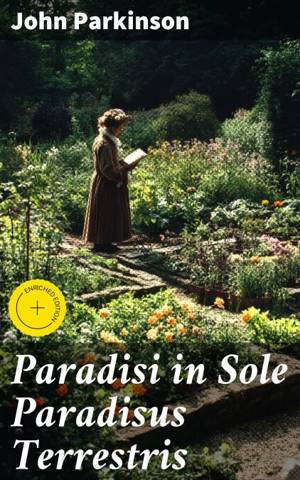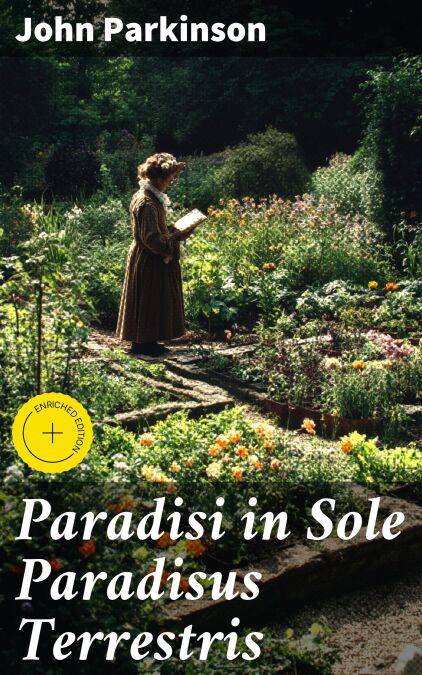
- Retrait gratuit dans votre magasin Club
- 7.000.000 titres dans notre catalogue
- Payer en toute sécurité
- Toujours un magasin près de chez vous
- Retrait gratuit dans votre magasin Club
- 7.000.0000 titres dans notre catalogue
- Payer en toute sécurité
- Toujours un magasin près de chez vous
Paradisi in Sole Paradisus Terrestris EBOOK
Enriched edition. A garden of all sorts of pleasant flowers
John Parkinson
Ebook | Anglais
1,99 €
+ 1 points
Format
Description
In "Paradisi in Sole Paradisus Terrestris," John Parkinson intricately weaves together botany and poetry within the context of a 17th-century England enthralled by the Scientific Revolution. This seminal work serves as both an extensive botanical treatise and a lyrical homage to the gardens of the time, embodying the Baroque style with its vivid imagery and rich descriptions. Parkinson meticulously catalogs a variety of plants, encouraging readers to engage with the natural world's beauty while simultaneously revealing the intricacies of cultivation and horticulture, reflecting the growing interest in the empirical study of nature. John Parkinson, a noted botanist and herbalist, was a pivotal figure in the English gardening movement, serving as the official herbalist to James I. His deep-rooted passion for plants, fostered by his professional background as an apothecary, greatly influenced his work. Each page reveals his scholarly dedication and profound appreciation for nature, showcasing his commitment to blending scientific inquiry with artistic expression during an era that was beginning to challenge traditional views of knowledge. This remarkable book is a must-read for anyone interested in the history of horticulture, botany, or the literary fusion of science and art. Parkinson's vivid prose and poetic flair invite not only botanists but also general readers to appreciate the lush world of plants, making it a timeless source of inspiration and knowledge.
In this enriched edition, we have carefully created added value for your reading experience:
- A succinct Introduction situates the work's timeless appeal and themes.
- The Synopsis outlines the central plot, highlighting key developments without spoiling critical twists.
- A detailed Historical Context immerses you in the era's events and influences that shaped the writing.
- A thorough Analysis dissects symbols, motifs, and character arcs to unearth underlying meanings.
- Reflection questions prompt you to engage personally with the work's messages, connecting them to modern life.
- Hand‐picked Memorable Quotes shine a spotlight on moments of literary brilliance.
- Interactive footnotes clarify unusual references, historical allusions, and archaic phrases for an effortless, more informed read.
In this enriched edition, we have carefully created added value for your reading experience:
- A succinct Introduction situates the work's timeless appeal and themes.
- The Synopsis outlines the central plot, highlighting key developments without spoiling critical twists.
- A detailed Historical Context immerses you in the era's events and influences that shaped the writing.
- A thorough Analysis dissects symbols, motifs, and character arcs to unearth underlying meanings.
- Reflection questions prompt you to engage personally with the work's messages, connecting them to modern life.
- Hand‐picked Memorable Quotes shine a spotlight on moments of literary brilliance.
- Interactive footnotes clarify unusual references, historical allusions, and archaic phrases for an effortless, more informed read.
Spécifications
Parties prenantes
- Auteur(s) :
- Editeur:
Contenu
- Nombre de pages :
- 906
- Langue:
- Anglais
Caractéristiques
- EAN:
- 4064066439088
- Date de parution :
- 09-07-23
- Format:
- Ebook
- Protection digitale:
- Digital watermarking
- Format numérique:
- ePub

Les avis
Nous publions uniquement les avis qui respectent les conditions requises. Consultez nos conditions pour les avis.






